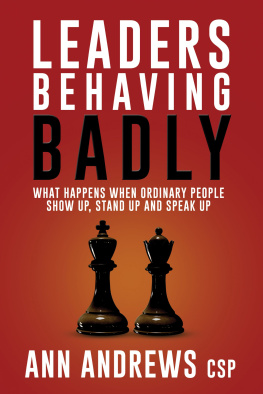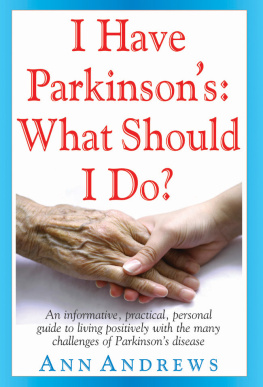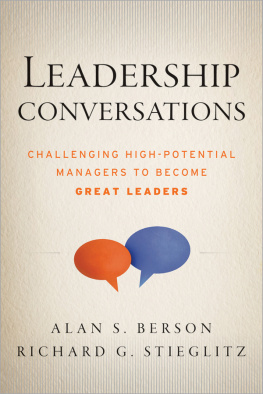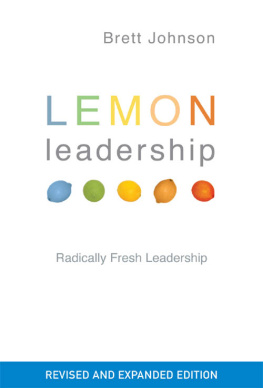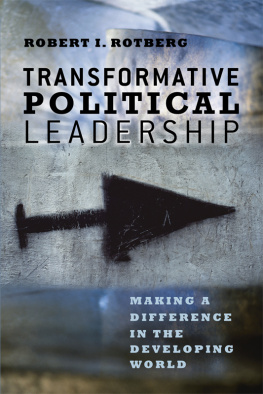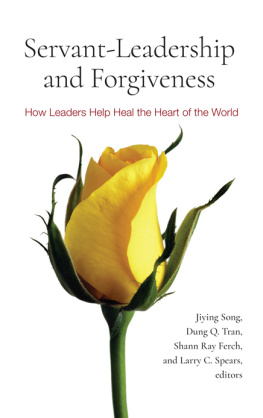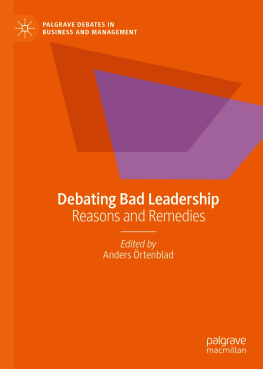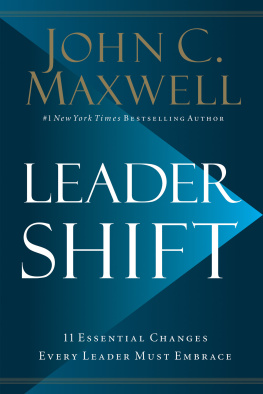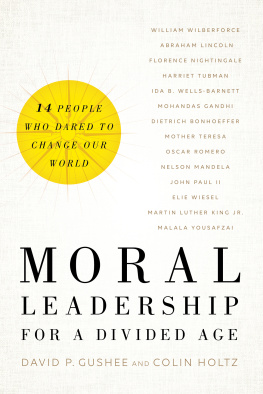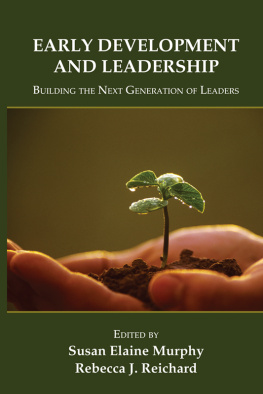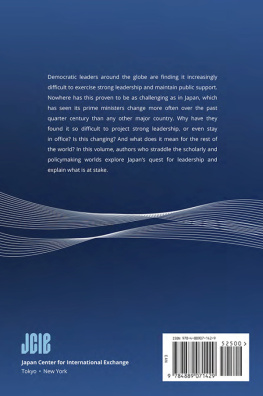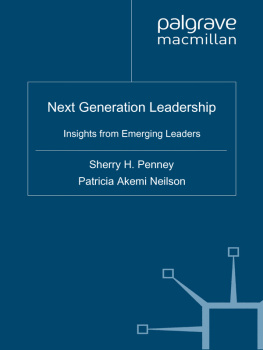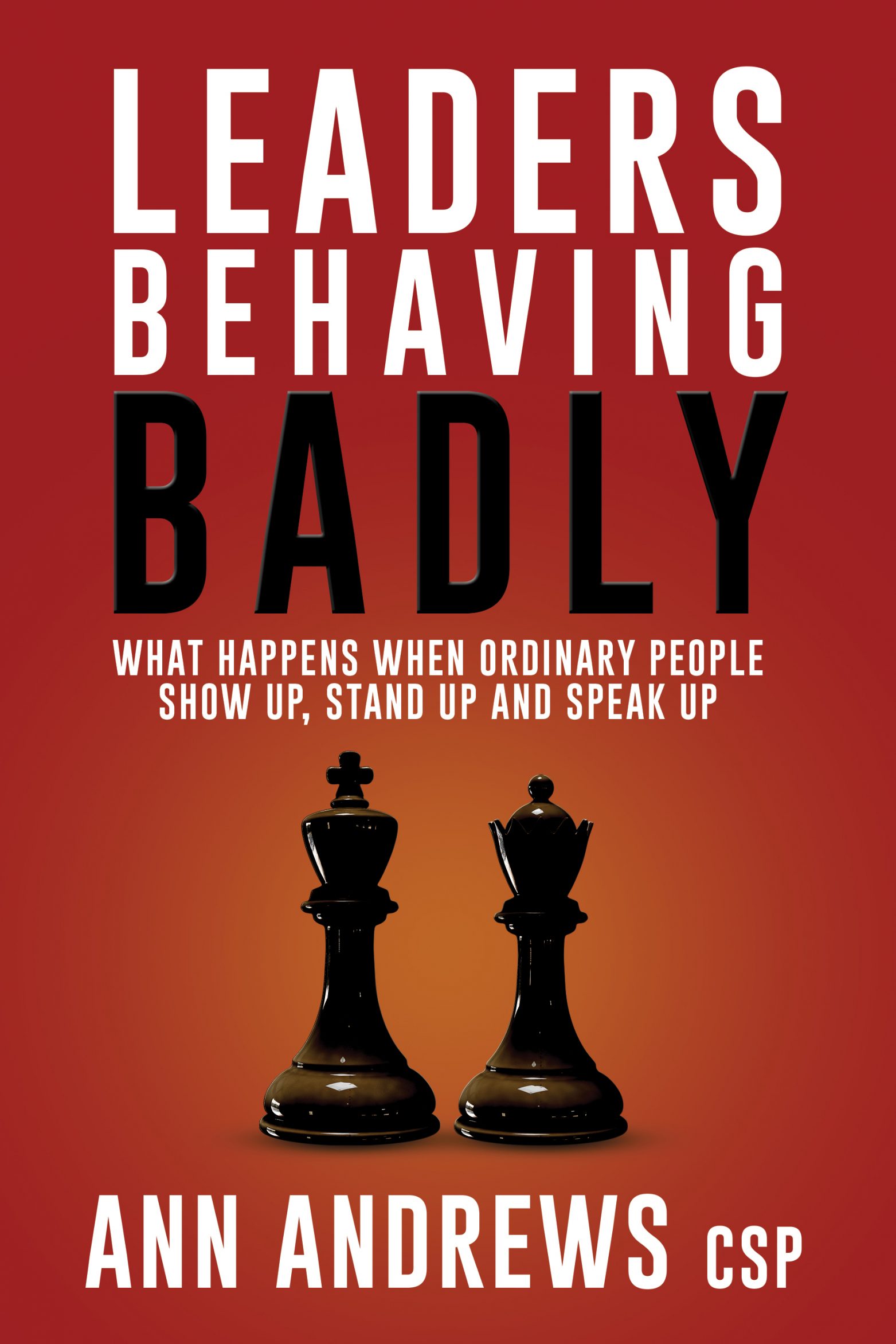Leaders Behaving Badly
What happens when ordinary people show up, stand up and speak up
Ann Andrews CSP
Copyright 2019 Ann Andrews
Ann Andrews asserts her moral right to be identified as the author of this work.
All rights reserved. No part of this publication may be produced or transmitted in any form or by any means, electronic or mechanical, including photocopying, recording or information storage and retrieval systems, without permission in writing from the copyright holder.
Published by Activity Press
Contact author: www.annandrews.co.nz
A catalogue record for this book is available from the National Library of New Zealand.
To our much-loved grandson Blair
(9 September 2003 9 March 2018)
Soccer hero, computer whiz, leader-in-waiting
Gone way too soon
Contents
When I finished writing the Trump book (Lessons in Leadership: 50 ways to avoid falling into the Trump trap) I thought that was it. Id done it. Id said my piece. Id said Trumps behaviours were not okay. Id offered some alternative behaviours for leaders and potential leaders to follow rather than thinking that if it was okay for the President of the USA to marginalise and abuse people, then it must be okay for others to treat people that way. It isnt!
Even after Id closed the book off (albeit with the words To be continued), I really thought he couldnt get any worse, and then every day he did.
He seemed to have no ability or desire to learn on the job or to improve his communication skills. It was clear that his modus operandi would be to keep on endlessly blaming others for mistakes he was making and I watched in never-ending horror as his name-calling, fabrications and highly dangerous tweeting continued unabated.
It became more obvious by the day that he had no concept of the right thing to do in any given situation, in fact if there was a right way or a wrong way to do something, it seemed that he would most likely choose the wrong way even when choosing the right way was possibly even simpler.
Leaders should model good behaviour. They should be above name-calling and blaming and throwing people under buses. Sadly, Donald Trump isnt. So I will keep on writing because I fear his normalising bad behaviours, not only in other politicians but in other leaders, in communities, in schools, in families and in children.
We have an acknowledged global online bullying problem, so doing what he does via Twitter gives permission to the kids who are likely to bully others online. Its fairly logical for people who have a tendency to bullying to think it must be okay if the President of the USA gets away with doing it on a daily basis.
When people ask, Who are you and why do you think you are qualified to make comments on the President of the USA?, my reply is this: in my book, seeing that something is horribly wrong and speaking up is far better than the bigger sin of seeing something wrong and turning a blind eye. And we dont need an alphabet soup of letters after our names to see that what Trump is doing is a million miles away from being okay.
I also believe there are two groups of people who can and should ask awkward questions:
Young children when they ask us Why? and we adults cant find a logical answer because weve been found wanting
Grandmothers who have been around the block a few times, whove seen the best of behaviours and the worst of behaviours and have no problem calling out those bad behaviours no matter who is displaying them. I fit into the grandmother category and so as long as Donald keeps displaying his totally inappropriate and even dangerous behaviours, Ill keep calling them out.
I keep hoping and praying that he wont last much longer as POTUS. I keep hoping and praying that, at best, he will work out that he is out of his depth and graciously resign, though that is probably wishful thinking, or he will be impeached or even that the 25th Amendment will be invoked.
I live in hope.
Capitalism is the extraordinary belief that the nastiest of men for the nastiest of motives will somehow work for the benefit of all. John Maynard Keynes
In the interim or even in the aftermath of any of those things happening, I want to look at the bigger issues the world is facing:
- Democracies versus dictatorships
- Political systems that dont seem to serve the people
- The sheer waste of money in the political arena because of partisan behaviour
The simple idea that politicians should be working together on issues rather than turning everything they touch into political footballs. Incredibly important topics like health and education and feeding an ever-growing human population and looking after an aging population and perhaps tackling global warming; just a few of the tough challenges on our horizon.
I also want to ponder what I hope and pray is a sea change in politics. I want to explore what happened here in New Zealand politics in our elections. Yes, we are a small country and in no way could our challenges measure up against the challenges of the USA; however, we have witnessed a different kind of politician emerging and causing a stir. I want to talk about kinder politics and the potential of what that could do to encourage younger people to not only get out and use their votes, but perhaps to become more involved in the political sphere. After all, it is their future that is on the line if we dont change the current political systems.
If we keep witnessing kindergarten behaviours from people who should know better and should behave more professionally and we keep accepting those abysmal standards, then we probably get the leaders we deserve.
Part 1 of the book focuses on the complex and confusing leadership enigma.
In Chapter 1 I ask, What type of leader are you? I discuss leadership per se and the types of leadership styles and skills Ive met over my years in HR. I discuss what happens when people become accidental and even reluctant leaders; people who see something that isnt right and step up to bring about change. I talk about healthy change versus dysfunctional chaos and how to tell the difference and I use current research to analyse whether women make better leaders than men.
In Chapter 2 I look at why leaders fear making mistakes and why it is often easier to just do things the way theyve always been done because that feels safer and the outcome is more predictable. I also share my thoughts on why changing something a leader doesnt understand is actually worse than making a mistake. I look at finding the balance between bringing on board people with fresh ideas and energy but with little or no experience. And I look at how reputations can be lost in the blink of an eye if solid foundations are not built or are forgotten or even neglected.
Chapter 3 asks the question Tough leader or bully? and explores the dark side of people in power. I look at the difference between harassment and bullying; what bullying is and what it isnt. I also share some of the costs of bullying, in monetary terms, but also in terms of the health and wellbeing of the targets of a bully.
Chapter 4 discusses the culture of organisations, how culture is created and what it is built on. I also introduce the things that destroy culture; the games people play because of vested interest or because they are recruited into positions which are simply beyond them but they fear the humiliation of admitting that they are way out of their depth. I talk about the dangers of normalising poor behaviour and that organisations and leaders need to be very clear which behaviours cross a line.

